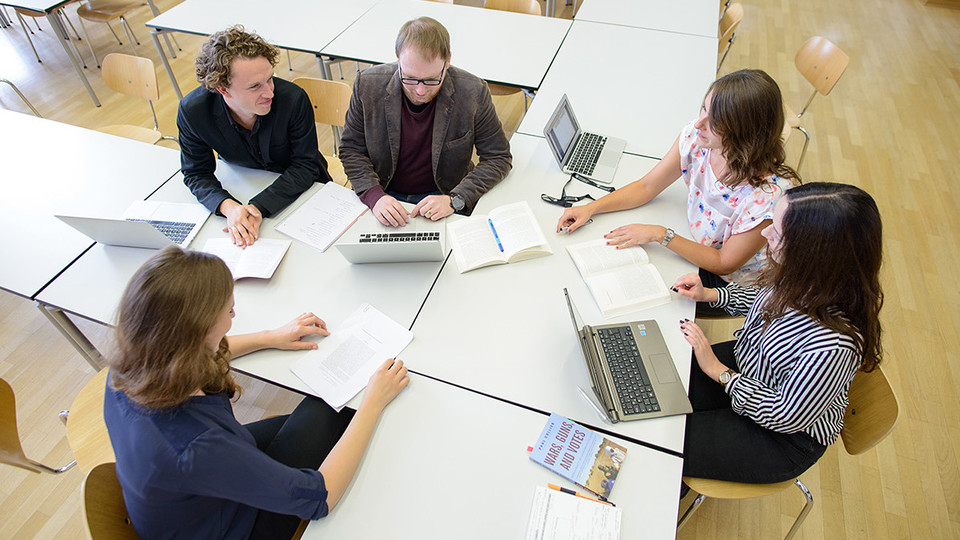Free Speech at Universities: A New Approach in a Controversial Debate

Doktoranden
The project is based on a study of the Mannheim political scientist Prof. Dr. Richard Traunmüller and his colleague Dr. Matthias Revers. At the end of last year, this study had triggered a huge response in national media. Based on a survey at the Goethe University Frankfurt, the authors concluded that students are in favor of restricting freedom of speech when it comes to controversial topics.
Critical voices in academia, however, have criticized the design and the interpretation of the study. The political scientist Dr. Alexander Wuttke, fellow at the Mannheim Centre for European Social Research of the University of Mannheim, has initiated a project to invite researchers with conflicting viewpoints on the original study to collaborate with the original authors of the study. The aim is to agree on a research design which seems plausible to all researchers involved, even if their fundamental views may differ. “With this innovative research project, we want to bring together different viewpoints in a constructive way and test the individual hypotheses of the researchers with new data”, says Wuttke who supports the process as a neutral ombudsman.
The idea of an “adversarial collaboration” goes back to the Nobel laureate Daniel Kahneman who invited critics of his studies multiple times for research collaborations. Another characteristic of this approach is the willingness of the contributing researchers for preregistration. Preregistration implies that the contributing researchers determine all aspects of the analysis strategy and define which results would and would not be in compliance with their individual expectations, before new data are collected. For example, the researchers agree on the instruments which would be best suited to evaluate if students are willing to restrict the freedom of speech. Before data are collected, they define the threshold for an unexpected or concerning rejection of democratic principles.
Social scientists with conflicting viewpoints on the original study of Traunmüller and Revers are now invited to participate in this project. The call for participation in the pre-registered adversarial collaboration is available online. Please go to https://osf.io/p59cd/.
Link to the original publication:
Matthias Revers, Richard Traunmüller. Is Free Speech in Danger on University Campus? Some Preliminary Evidence from a Most Likely Case. Kölner Zeitschrift für Soziologie und Sozialpsychologie, 72, p. 471–497(2020)
Article of Daniel Kahnemann:
„Experiences of Collaborative Research“ (2003)
